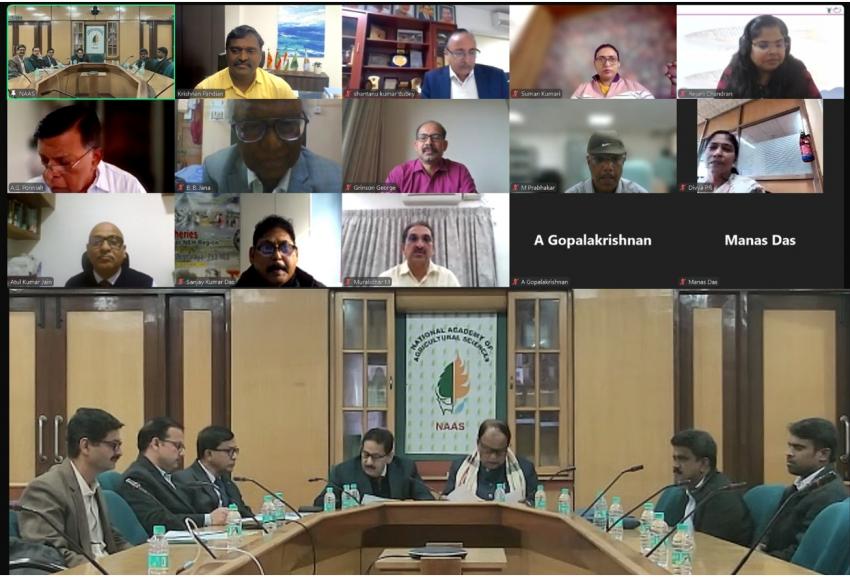he National Academy of Agricultural Sciences (NAAS) hosted a Brainstorming Session (BSS) on "Climate Adaptive Conservation of Aquatic Genetic Resources" on December 20, 2024.
Participating as an expert resource person, Dr. Krishnan, Director, BOBP-IGO emphasized the need for sustainable practices in fisheries, projecting an optimistic yet cautious view of how technology could transform fishing practices in the next 50 years. He outlined the severe implications of climate change on marine ecosystems, noting that the Indian Ocean has seen a significant rise in temperature, with projections indicating an increase in marine heatwave days from 20 to 250 per year by 2100. This warming trend threatens fish populations and livelihoods, particularly in lower-middle-income countries that rely heavily on marine resources.
Dr. Krishnan called for proactive adaptation measures for fishing communities like early weather warnings, improved vessel tracking, etc., and underscored the importance of developing a climate-smart value chain to minimize losses and optimize fishing efforts.
He advocated for a shift in climate research paradigms to focus more on practical applications and urged the National Agricultural Research & Education System (NARES) to consider expansion of its research scope beyond the frontiers, thus taking the advances in climate research to the benefit of the region.
Earlier, Dr. W.S. Lakra, Secretary, NAAS, welcomed participants, followed by introductory remarks by Dr. U.K. Sarkar, Director, ICAR-National Bureau of Fish Genetic Resources (NBFGR), Lucknow.
